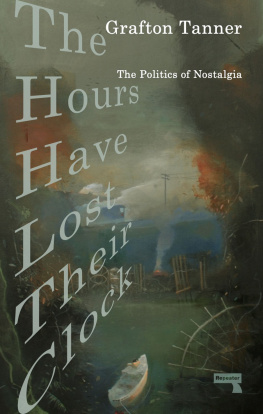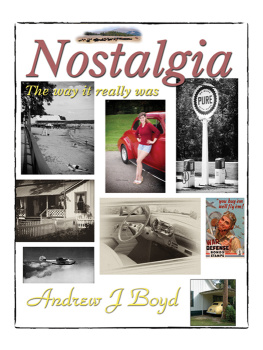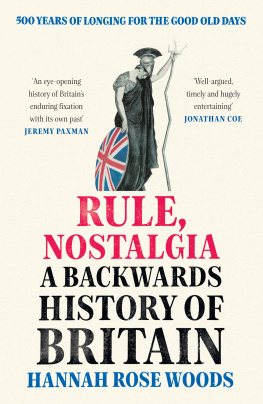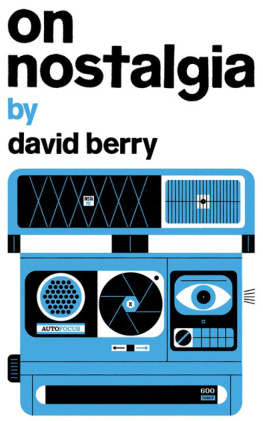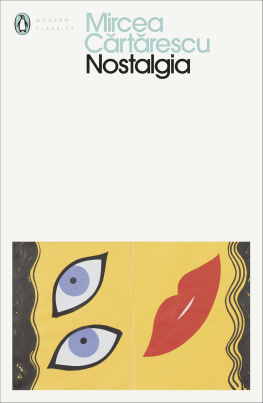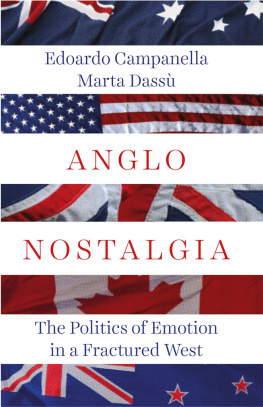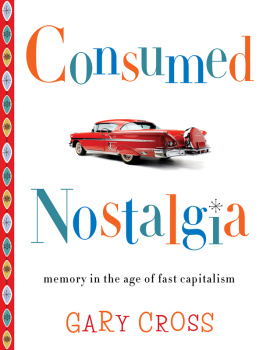


Published by Repeater Books
An imprint of Watkins Media Ltd
Unit 11 Shepperton House
89-93 Shepperton Road
London
N1 3DF
United Kingdom
www.repeaterbooks.com
A Repeater Books paperback original 2021
Distributed in the United States by Random House, Inc., New York.
Copyright Grafton Tanner 2021
Grafton Tanner asserts the moral right to be identified as the author of this work.
ISBN: 9781913462444
Ebook ISBN: 9781913462543
All rights reserved. No part of this publication may be reproduced, stored in a retrieval system, or transmitted, in any form or by any means, electronic, mechanical, photocopying, recording or otherwise, without the prior permission of the publishers.
This book is sold subject to the condition that it shall not, by way of trade or otherwise, be lent, resold, hired out or otherwise circulated without the publishers prior consent in any form of binding or cover other than that in which it is published and without a similar condition including this condition being imposed on the subsequent purchaser.

Printed and bound in the UK by TJ Books
To Anna and Lily
Contents
One is always at home in ones past.
Vladimir Nabokov
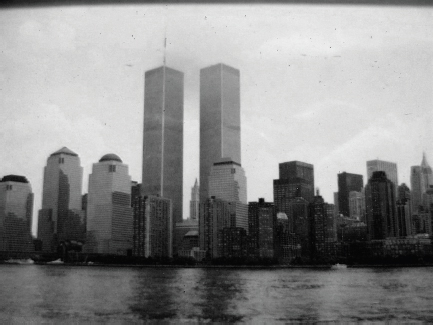
Introduction
On September 10th, 2011, ABC News ran The Way We Were, a special segment looking back at the biggest news stories before the world changed forever on September 11th, 2001. Commemorating the tenth anniversary of the 9/11 terrorist attacks, the segment showcased the major headlines of September 10th: Michael Jackson was planning a comeback, Barry Bonds was knocking home runs, and Donald Rumsfeld had declared war on bureaucratic waste. (It wouldnt be the only time he declared war on a concept.) Social media didnt exist, and neither did smartphones. There were no IEDs, no anthrax, no threat levels, no Department of Homeland Security, ABCs John Berman reported. It was the last day of then, before the first day of now.
By 2011, many had grown so tired of the twenty-first century that they yearned for a time before 9/11 sometimes, literally, for the day before. There was a feeling in the air that something had changed that could not change back. Commemorative segments like The Way We Were merely gave the public what it wanted: the past embalmed in amber, the days before 9/11 recorded for everyone to replay, and a quick fix of nostalgia for life before the paralyzing trauma of the new century. Unable to reclaim lost time, those who could remember the way we were peered at the past through the prison bars of the present, cursed with a great and terrible truth: to remember 9/11 is to never forget 9/10.
The feeling that we are locked in the present hasnt gone away. It has merely intensified with each new trauma: the collapse of the climate, the rise of authoritarianism, the financial crashes, the endless wars. We are aware of our place in history, jostled around by world-historical forces like ships in rough seas. Adrift and helpless in the present, many cling tightly to the past and long for its stability.
This aching hunger for the past, nostalgia, is the defining emotion of our time. Although theres plenty of anger to be found online, despair is everywhere, and fear fuels politics, nostalgia eclipses them all. Political leaders are always promising a return to yesteryear, when things were simpler, less unstable. Media corporations flood streaming platforms with remakes and reboots. Outdated styles are constantly being repackaged, reimagined, and re-tooled to sate present thirsts. It seems the farther we march into the future, the stronger nostalgia grows.
In the late seventeenth century, the Swiss medical student Johannes Hofer coined nostalgia as an intense pathological longing for ones homeland. While we think of nostalgia as an emotion today, Hofer saw it as a disease. But with no cure in sight, it was gradually mixed into the palette of human emotions, something neither clinical nor fatal, but essentially human. Anyone could feel it, at any time. In the twentieth century, advertisers and corporations took note of its effectiveness at selling products. Citing the latest psychological research on nostalgia, they induced the emotion in marketing campaigns. Politicians also picked up on the power of nostalgia and called on the past to strengthen their platforms, as did the culture industry, which made a fortune off peoples nostalgia for several lost periods: pre-industrialization, the antebellum South, old Hollywood, the 1950s, and eventually the days before 9/11 and the digital age. At every level of It became nearly impossible for the public not to yearn for a simpler time in the past.
Today, nostalgia is inescapable. Theres a good chance youll feel it this week, maybe even today, when you go to work or as you read this book. Youll probably hear it in a speech or see it on a screen soon. Wherever you look, youll find it and feel it.
There are many reasons why we cant just shake off this emotion and embrace a belief in the future, and this book will shed light on some of them. But the overarching reason why nostalgia has broken out across the world is this: many living today are suffering, and the future looks bleaker each year. With little faith in a future of global warming and economic anxiety, many people turn to nostalgia to weather the present, while powerful elites exploit it for their own gain.
(Bitter)Sweet Emotion
Although most people know nostalgia when they feel it, researchers surprisingly cannot agree on what it is. Some say its a healthy emotion; others disagree. Frustratingly complex to model, it can be induced in a variety of ways to meet different goals. Sometimes it enables prosocial behavior, and sometimes its used to sell ideas that might not align with democracy. Not all nostalgic sentiments are created equal.
Its often confused with other emotional states, like homesickness and melancholia but there are some crucial differences between them. Whereas homesickness might be alleviated by returning home, nostalgia has no cure simply because one is typically nostalgic for a time other than the present. Until the invention of time reversal, nostalgic sufferers either remain in their state of yearning or get over it with time. Like melancholia, nostalgia can be induced in various ways: listening to music, watching an old movie, smelling freshly cut grass, or simply reminiscing. But its the next step that makes nostalgia distinct. Triggered by something, nostalgic individuals yearn for the place in time associated with the trigger. They start to remember the past and ache for it. Because human memory is tricky, though, what is remembered is often misremembered. Through memorys prism we may see a distorted image of the past, like looking through a kaleidoscope. We might be tempted to believe that things were better back then, especially if life in the present is so chaotic. Without a stable footing, we may be swooned to our demise by nostalgias siren song.
Next page
